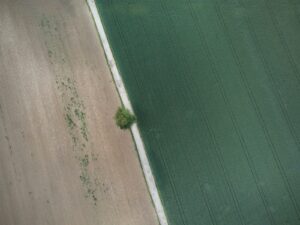The Wildlife Trust has secured £2m worth of funding to boost nature conservation projects across the UK.
The Postcode Lottery funding will be used to fund various nature restoration projects, protecting vulnerable peatlands, meadows and wetlands.
It is hoped that by restoring these habitats it will stabilise the emissions from the degraded land and will maximise carbon storage through natural processes.
Wild habitats have a huge role to play in addressing climate change, just one hectare of saltmarsh can capture two tonnes of carbon per year and lock it into sediments for centuries.
However, at the moment we are losing nearly 100 hectares of saltmarsh every single year.
Restoring habitats can also help to reduce the risk of flooding, help to prevent coastal erosion, improve health and wellbeing and maintain healthy soils.
One project that will benefit from the funding is Yorkshire Wildlife Trust’s peat restoration programme.
Dr Tim Thom of Yorkshire Wildlife Trust, who manages the project, said: ‘Yorkshire’s peatland holds an estimated 38 million tonnes of carbon in total. However, much of it is in decline – channels were historically cut to drain the peatland, and ongoing activities such as grazing and burning can continue to cause damage.
‘Since 2009, we’ve been working to restore the blanket bog on a massive scale by blocking drainage ditches, replanting bare areas with mosses and other plants, and reducing erosion.
‘So far, we have completed restoration works on over 30,000 hectares of Yorkshire’s blanket bog.
‘This vital work can reverse the loss of peat and helps keep carbon locked up. It also helps regulate water flow and reduces the risk of flooding, increasing the resilience of communities downstream.’
Craig Bennett, chief executive at The Wildlife Trusts, added: ‘Wilder places are better for beavers, birds and butterflies and better for storing carbon too, which is good news for tackling climate change.
‘When you re-wet a peatland and stop it from drying out, it locks up vast amounts of carbon and this new Postcode Lottery funding means The Wildlife Trusts can make this happen on a huge scale.’
Photo Credit – Pixabay

















It’s disappointing to see the trope – generally put forward because of an anti-shooting interest rather than actual scientific evidence – that heather burning is destroying peat. Burning of surface vegetation on short rotations encourages sphagnum, and it is not an accident that peat has been retained in areas that have burned heather in cycles, but lost in places drained for grazings or left vulnerable to ‘deep’ fires. People should be careful in drawing quick conclusions because they fit with the politics of the majority of (even entirely well-meaning) environmental campaigners. The reality – particularly when it comes to peat and soil carbon – is usually very complex indeed.